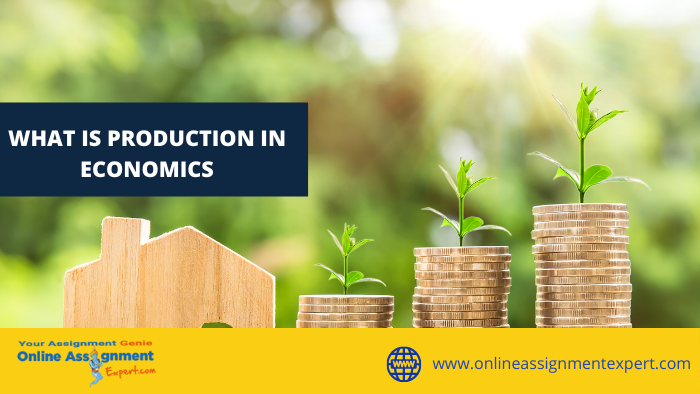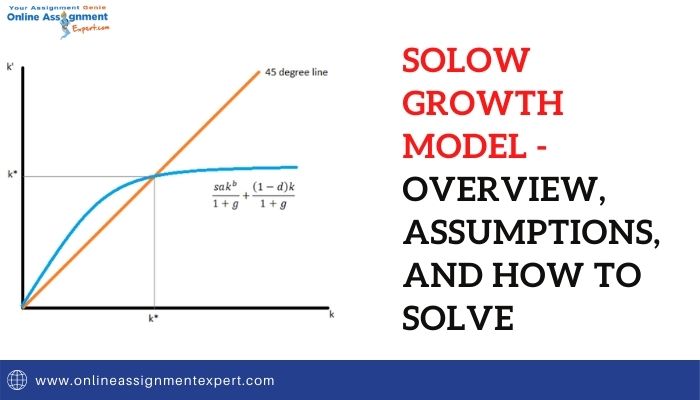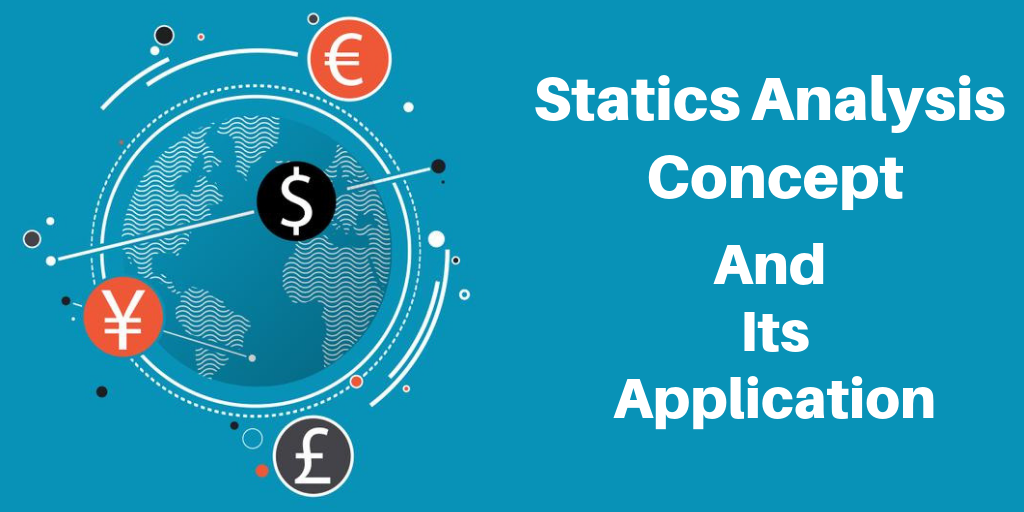
December 29, 2021
What is Production in Economics
No 1 Assignment Help
is only a click away.
A One-way Guide to Understand What Is Production in Economics?
We consider as production within a time period any action that either produces value during the period or improves society's ability to create utility in the future, since the primary goal of economic behaviour is to produce an advantage for people.
According to Fraser, "if consuming implies withdrawing utilities from," "creating involves putting utility into."
Let’s bump into the most elevated question of this time i.e. what is Production in Economics?
.png)
What Does Production In Economics Means?
Production in Economics can sometimes be concerned with the creation of utility or wants – satisfying items and services. It is said that a man cannot make or destroy matter in the same way that he cannot destroy it. As a result, production should be defined as the development (or addition) of value, rather than the creation (or addition) of convenience. There are three types of utilities:
- Utility of the form
- Usefulness of time
- Placement is really important.
In economics, production is a very significant activity. As we all know, a company's capacity to increase production at a competitive price is critical to its survival in a marketplace.
One of the primary concerns of corporate executives is achieving maximum manufacturing costs while lowering production costs.
Students can also seek Economics assignment help from us to get the proper assistance of assignments and understanding.
How Do Production Factors Work?
The present understanding of components under Production in Economics are mostly based on a conservative economics perspective. It combines previous economic theories, such as socialism's conception of labour as a unit of production, into a single term.
Early political economists such as Adam Smith, David Ricardo, and Karl Marx classified land, labour, and capital as components of production. Capital and labour are still the two most important inputs for process and earnings today. Certain indicators, such as the ISM manufacturing index, can be used to track production, such as in manufacture.
4 Production in Economics Factors
Land, labour, capital, and entrepreneurship are the four components of Production in Economics.
The Role of Land
Land, as a factor, has a broad definition and can take various forms, from farm production to private equity to the commodities that can be accessed from a given area of land. Oil and platinum, for illustration, can be collected from the land and cleaned for human usage.
Characteristics that might designate a particular factor as "land"
- Nature's gift of land is unrestricted.
- Nature's gift of land is unrestricted.
- The land is eternal and possesses indestructible qualities.
- The land is a non-active factor.
- The land does not move.
- Land can be used in a variety of ways.
- The land is diverse.
The Role of Labour
The physical and mental endeavours of human beings who participate in the Production in Economics process are referred to as labour. Additionally, the underemployed, semi-skilled, and technically talented labour are all included in this. Changes in labour supply are influenced by price changes. It rises in tandem with salary growth. Wages and salaries are the financial compensation for labour.
Work characteristics include:
- Human Effort
- Labour is a finite resource.
- Labour is a driving force.
- The labourer and labour are inextricably linked.
- Labour power varies from one worker to the next.
- It is possible that not all labour is productive.
- Labour's negotiating leverage is limited.
- Labour is on the move.
The Role of Capital
Humans generate money, which is referred to as capital. It is a vital factor in the production of all members in the supply chain, as manufacturing cannot take place without capital.
- Capital is a product of one manufacturing process that is used as an input in another manufacturing process.
- Capital is separated into two categories as a factor of production: capital equipment and human capital.
- Buildings, machinery, equipment, and other tangible resources are types of active capital.
- Human capital refers to human resource intellectual abilities acquired via schooling, employment, and practice. Interest is the phrase for the return on capital.
The Roles of Entrepreneurship
- Entrepreneurship is made up of three key functions: collaboration, management, and oversight. An entrepreneur is someone who starts a business.
- The entrepreneur's efficiency determines whether the business succeeds or fails.
- An enterprise is a business that focuses on supplying goods and services for marketing gain or business activities.
- An enterprise is made up of people and physical assets with the common purpose of making money.
- Initiating a commercial venture and coordinating resources
- Innovations that take on uncertainty and risk
Are All Production Factors Equally Important?
Some Production in Economics factors may be more significant than others situationally. A software corporation that depends heavily on the labour of competent software developers, for instance, may regard labour as its most valued factor of production. A corporation that makes money by creating and selling out office space, on the other hand, may consider land and capital to be its most significant assets. The relative strength of the variables of production will fluctuate as the demands of a firm change throughout time.
What Are The Types Of Production In Economics?
There are three primary product categories to choose from:
- When things are made one at a moment and finalized before the next one begins, this is referred to as production rates. Designer garments are made using the job methodology.
- When a group of commodities is produced at about the same time, it is referred to as units produced. Each group of items must be finished before going on to the next. A baker, for illustration, may start with an order of 50 white loaves. They'll start baking 50 loaves of wholegrain bread as soon as they're done.
- On an assembly line, the supply chain refers to the introduction of identical, homogeneous objects. The bulk of autos are produced in large factories with conveyor belts and slightly elevated equipment such as robot arms. People have collaborated.
Our economics assignment help experts can assist you with all types of assignments and tests.
Help with Economics Assignments of High Distinction
At Online Assignment Expert, we work hard to ensure that students are satisfied. Our Economics assignment help writers guarantee that you will receive high-quality economics projects and hope that you learn- what is Production in Economics in a better way.
- We are excellent at expressing and presenting ideas.
- We write in a conversational tone.
- You may rest assured that there will be no grammatical or spelling mistakes. All sources are correctly cited and utilised, including contemporary material.
- The economics assignments demonstrate how to use data effectively.
- Theoretical and practical knowledge are effectively blended.
- Our Economics assignment help professionals provide insights and awareness of deeper and more nuanced components of the relevant theory in their assignments.
- There is conclusive proof of core materials that have been investigated.
- We present well-articulated statements with evidence to back them up.
- Originality and independent ideas are demonstrated.
- Has well-honed analytical skills and routinely exhibits high levels of critical thinking.
- The conclusion is both clear and simple.
Feel free to consult us for assistance at any level via phone call or a message!
Related Blogs
Subscribe Our Newsletter & get Information about latest courses









